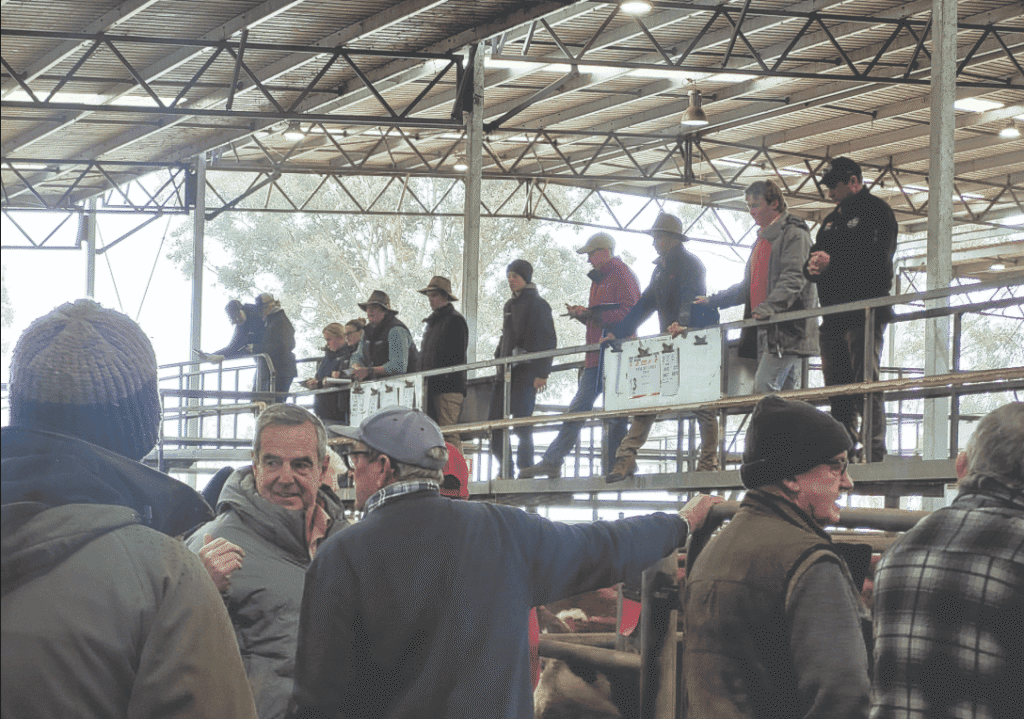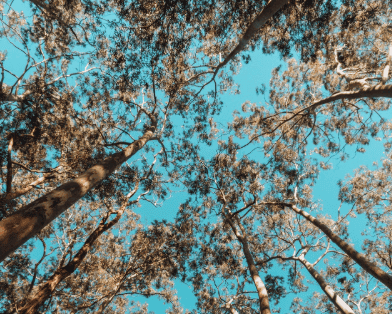News Article
Taungurung Land and Waters Council (TLWC)
THE Taungurung Land and Waters Council (TLWC) moved into their new offices in Alexandra just prior to the pandemic, and while pandemic certainly slowed down their plans, they’re now focused on the future.
Matthew Burns, CEO of TLWC, explained that they needed another spot for their organisation and expansion of their operations base for people working in the field. The Alexandra location was identified during negotiations with the state as a potential facility for them to take on as part of their settlement with the state, and they decided to take it up. Alexandra is very central to Taungurung country.
The Alexandra Community Shed and Eildon and District Woodworkers Guild had been using the property, and while there may initially have been some concerns in the group that they would need to relocate, the TLWC had no intention of asking them to do so.
Mr Burns said, “We want to establish really strong relationships in the community. We want to support the community to achieve what they want to achieve, and we also hope that they’d like to help us achieve some of the things we’re wanting to achieve in the community as well.”
They’re now looking to clean up the buildings and re-establish themselves.
Sherryn Antonopoulos, general manager, said that the operations side of the TLWC is based in Alexandra. They have a cultural heritage team, as well as a bank of casuals who are out in the field, protecting their cultural heritage under the act. There is also a natural resource management team, who are their ‘caring for country team’. They engage in activities such as weed spraying, and they have a mountain pygmy possum project at Mount Buller, working with the catchment management authorities and DELWP.
They have eight people working out of the Alexandra office on most days, as well as another four who come and go. Once they finish the back building, there will be more.
“What we’re wanting to do is obviously grow. As part of our settlement agreement that’s occurring anyway. Part of that will be looking at what we can do around this office area to improve it,” Ms Antonopoulos said.
The building is currently quite run down, so they’ll be looking at grant opportunities to make improvements while retaining the character.
The back building has all been stripped out by the community shed and woodworkers. They have an agreement where the community shed and woodworkers are not charged any rent, but in return, they help out with the buildings. They did the first exterior building in the first lockdown, and the second building in the second lockdown.
The TLWC is delighted with the relationship which has been forged between the two groups. The community shed and woodworkers have even, off their own bat, installed a second flagpole at the site, so that the Taungurung sovereign flag can be flown. Sherryn has also arranged for the community shed and woodworkers to be able to use one of the TLWC sheds up the road for their timber mill.
Their future aspirations, beyond the renovations, are to hold larger events such as cultural awareness training and so on. They are also talking about creating a bush tucker garden out the front, so they can invite groups such as primary schools to come along for interactive cultural education.
Individuals are also invited to just walk in the front door, and “Have a yarn with us,” Ms Antonopoulos said. They also have information available on their website, and are developing fact sheets. Mr Burns added that they may also at some point hold a community day.
“The Taungurung values are that we want to care for the land. As traditional owners, that’s what we try to do. There’s this barrier to the ordinary person because we’re Aboriginal people. People might feel a bit uncertain about how to approach, but if we can establish good relationships here with the woodworkers and others, as I said, support their aspirations, because we are community people anyway, we’d hope that they’d start to buy into our values around caring for the land, which I think most people do anyway, but just to understand that we’re not all that different but that we have a view from cultural knowledge and cultural practice that we want to reinvigorate on-country to care for the land that not only we come from, but that a lot of people live in today. We’re hopeful and believe that there’s a real opportunity to create a stronger community because of it,” Mr Burns said.
A treaty process is currently underway, and within that was a decision made by the First Peoples’ Assembly and the Victorian Government to commence a Truth and Justice process called the Yoo-rrook Truth Commission. The aim of it is “to go back to colonisation and talk through all the things that occurred, because the general population just don’t have a fundamental understanding of the things that happened in the state of Victoria… They want people to learn and understand the true history of colonisation”
This includes gaining a better understanding of the land taken from Indigenous people under colonisation and the stolen generations.
“In Victoria up until 1991, if you were Aboriginal and you were taken into care as a child, you were given a criminal record,” Mr Burns said. “In Victoria and Western Australia, there was something called a half-caste act, where you were forcibly removed from your land as a traditional owner. You were forced into a mission, and then if you had a child to a white person, you were then forcibly removed from the mission and told to live like a white person. The traumas that happened through family and generations continues though. These are all the things that I just don’t think people really understand the impact.”
Ms Antonopoulos said, “We want to educate people… We just want to know that our heritage is out there, and our cultural values are there.”
They also want to build their own knowledge base and find ways to move forward through “building community relationships, and making the wider community realise that we’re not here to take your land. We don’t want to take your land. We just want to know if there’s something on there, we would love the invite to be able to come out, whether they’re scar trees or middens or all those sorts of things,” Ms Antonopoulos said.
Mr Burns has found that farmers can be scared to tell the TLWC about Indigenous artifacts which have been found on their land. “Private land is private land,” he said, adding that what they’re asking people is to let them know if they’ve found something, and the TLWC will show you what it is. Through education, they hope to make people stewards. The Mayor of Strathbogie had some items on her property. They found some items, and she wanted to give them to the TLWC, but they refused. They instead took some replica moulds and gave them back. They want the items to remain on the property where they were found. They don’t want to create huge collections.
They want to understand more about their history. They’re not trying to stop you from doing anything on your land. For development, their aim is to minimise harm to the artifacts.
People are becoming increasingly receptive towards allowing this to happen. Historically, when people were concerned, they would sometimes destroy things. The TWLC certainly don’t want this to happen, and there’s no need for it to happen.
In the longer term, they want to be seen as part of the community, not as an outsider group. They’re very mindful of spending money locally where possible.
In the future, they will look towards having a cultural centre, with an interface for feedback on cultural output involving indigenous people.
At the moment, their focus is on re-learning their culture. “We’ve lost our language. We’re trying to reinvigorate language. We’ve got a dictionary now,” Ms Antonopoulos said.
...continue reading the full article by subscribing to our weekly, monthly or annual subscription here.
If you see a photo in the paper of your child, grandchild, partner, or friend we can supply you with a copy to put on your wall as long as Alexandra Newspapers took the photo (we cannot provide a copy of a photo that was taken by a third party).
Alexandra Newspapers is proud to distribute our two primary publications through newsagents, supermarkets, petrol stations and many other outlets across the Murrindindi Shire and beyond.
Alexandra Newspapers offers display and classified advertisements as well the ability to promote your business. Both the Alexandra Standard and the Yea Chronicle offer classified ads for: Births, Deaths, Marriages, Situations Vacant, For Sale, Garage Sale, In Memoriam, Happy Birthday, Anniversary, Public Notice, Meetings, Automotive, Car/Caravan/Motorbikes/Boats. For Rent/Lease, and Wanted.
Alexandra Newspapers can provide commercial printing of plans, posters, business stationery, invoice and receipt books, self-inking stamps and more. Reach out to us for any commercial printing jobs here.
Grab a copy of the weekly newspaper or reach out to us here for subscribing an offline newspaper copy.
Like, comment and share the article on your facebook page.
Want to read more articles like these?

Services
Newspapers
© 2020 - 2025. ALEXANDRA NEWSPAPERS. All rights reserved.
Privacy Policy | Terms of Use | Sitemap
Website built with ❤ by Regional Business Toolkit


